
A Sense of Doubt blog post #3226 - ZOMBIE! Cranberries - Music Monday for 2312.18
The Cranberries.
Sigh.
So great.
Dolores O'Riordan - RIP.
This post has been in the works for a while.
"ZOMBIE"

https://www.irishcentral.com/culture/entertainment/cranberries-song-zombie
The story behind Ireland's favorite song, "Zombie" by The Cranberries
This smash-hit was written by Dolores O'Riordan in protest against the Irish Republican Army bombing in Warrington, England in 1993.
The Cranberries hit "Zombie" was voted as Ireland's favorite song on RTÉ 2fm's Ultimate Irish Playlist in 2022 but do you know the history behind this smash hit number one.
"Zombie" was released by The Cranberries in 1994 as the lead single from the Irish rock group's second studio album "No Need to Argue." The song was written by lead singer Dolores O'Riordan as a protest against the Irish Republican Army bombing in Warrington, England in 1993.
The lyrics to "Zombie" describe the grief and anger felt by the loved ones of those killed in the bombing, with O'Riordan singing, "Another head hangs lowly, child is slowly taken. And the violence caused such silence, who are we mistaken? But you see, it's not me, it's not my family. In your head, in your head, they are fighting."
"Zombie" was a commercial success, reaching the top ten in several countries, including Ireland, the UK, and Canada. It also reached number one on the Billboard Modern Rock Tracks chart in the US, giving The Cranberries their first and only number-one hit in the country.
The success of "Zombie" helped "No Need to Argue" become one of the best-selling albums of the year, while also propelling The Cranberries to become one of the biggest bands of the 1990s. The song, one of the most recognizable from the 90s, has been covered by many artists and used in various movies and TV shows.
"Zombie" by The Cranberries is a powerful and emotional protest song and its commercial success and enduring message have made it a classic, still resonating with audiences today.
By 1994 The Cranberries were stars: then came the incendiary song that made them massive
By 1994, Limerick rock band The Cranberries had achieved international fame with their chart-topping, multi-platinum debut album Everybody Else Is Doing It So Why Can’t We?, and most people thought they knew exactly what the Irish four-piece were about.
As the final days of grunge stormed around them, they were a barefoot, floaty, slightly hippie-ish oasis of calm, the romantic longing of Linger and the fairy tale sugar-rush of Dreams further sweetened by singer Dolores O’Riordan’s girlish, heavily accented vocal style.
Then in September, in the run-up to the release of their second album, No Need To Argue, they turned their own image on its head by returning with Zombie, a grungy, gloomy, furious anti-war song that found O’Riordan raging against the violence caused by the conflict in Northern Ireland, which was making the news headlines on what seemed like a weekly basis.
On March 20, 1993, one of two bombs was planted in a litter bin in Warrington city centre by Irish republicans. When it exploded, 12-year-old Tim Parry and three-year-old Jonathan Ball were killed, and dozens of people injured, in an attack that shocked and appalled the public in the UK and Ireland alike. When the news of the attack broke, The Cranberries were on tour in the UK, and O’Riordan was on the tour bus in London.
“I remember at the time there were a lot of bombs going off in London and the Troubles were pretty bad,” she said, 24 years later. “I remember being on tour and being in the UK at the time when the child died, and just being really sad about it all. These bombs are going off in random places. It could have been anyone, you know?
“It’s a tough thing to sing about, but when you’re young you don’t think twice about things, you just grab it and do it. As you get older you develop more fear and you get more apprehensive, but when you’re young you’ve no fear.”
Zombie was written in a rare lull between tours; the band had spent the majority of the year on the road in the US, touring universities and arenas and building up their brand. Rather than being a collaborative effort, it was written by O’Riordan alone, in the calm of her own flat, and it began life as a much gentler proposition than it ended up as.
“It was extremely busy and we were working all the time around the clock,” she said. “That song came to me when I was in Limerick, and I wrote it initially on an acoustic guitar, late at night. I remember being in my flat, coming up with the chorus, which was catchy and anthemic. So I took it into rehearsals, and I picked up the electric guitar. Then I kicked in distortion on the chorus, and I said to Ferg [Fergal Lawler, drums]: ‘Maybe you could beat the drums pretty hard.’ Even though it was written on an acoustic, it became a bit of a rocker.
“That was the most aggressive song we’d written. Zombie was quite different to what we’d done before.”
It was recorded in Dublin with producer Stephen Street, who spent a long time working on getting the guitar settings right to give a suitably expansive sound. But while they were experimenting with raising the volume, O’Riordan said it wasn’t a concerted effort to ride the grunge bandwagon.
“It came organically because we were using our live instruments, we were plugging in a lot, and we started to mess around with feedback and distortion. When you’re on tour you start to mess around a bit more with the live side of things. There were a lot of bands around that were part of the grunge thing, and this wasn’t grunge, but the timing was good. We couldn’t have really fitted in with grunge, because we were just a different type of a band. We were Irish and from Limerick, and we had a lot of our own ideas. A lot of the grunge bands were very similar to each other.”
Equally important to the success of the track was the accompanying video, in which the singer was painted gold and surrounded by silver-painted cherubs. It was inter-cut with documentary footage of soldiers and children on the streets of Northern Ireland, filmed by director Samuel Bayer, who also made the videos for Nirvana’s Smells Like Teen Spirit and Blind Melon’s No Rain. It'd become one of the biggest rock music videos of its era.
“I actually thought the director was very brave,” said O’Riordan. “When he got back, he was pretty pumped – there was a lot of adrenaline pumping through him. He was telling me how tense it was and how he was blown away by the whole thing. He got footage of the kids jumping from one building to another, and he got a lot of footage of the army. He was a very good director.”
Released in 1994, Zombie went to No.1 in several countries and on the US rock chart (although it only made it to No.14 in the UK), and was certified platinum in Australia and Germany. At the MTV Awards, the band beat Michael Jackson and TLC to win Best Song. But that paled into insignificance when they were invited to perform it at the Nobel Peace Prize in 1998, when Ulster Unionist leader John Hume and SDLP leader David Trimble were honoured “for their efforts to find a peaceful solution to the conflict in Northern Ireland”.
Parent album No Need To Argue went on to sell 17 million copies, and made O’Riordan very rich. “I wouldn’t change anything about it, because it did so well,” she said. “It was well-written and it was well-composed. I think it did so well because it’s hard to categorise it. And I still like singing it.”
The cranberries revisited Zombie in 2017, less than a year before O'Riordan's tragic death, when they re-recorded an acoustic version with the Irish chamber orchestra for the band’s reworked greatest hits collection Something Else.
“We did it with a quartet, so it’s a lot tamer but it’s still nice,” said O’Riordan. “it’s interesting to do acoustic versions of your songs because it kind of shows that they can stand acoustically as well: is it a good song? Has it a good chorus? Has it a good verse? Does it have a bridge? “I think when you’re young you have lots of aggression. When you get older it kind of goes away, you get a bit more laid-back. it was fun to go back to it.”
‘Zombie’:
The Story Behind The Cranberries’ Deathless Classic
A furious anti-terrorism lament, ‘Zombie’ found the The
Cranberries unleashing ‘the most aggressive song we’d written.’
There were a lot of bombs going off”
“Zombie”‘s genesis is traceable to March 20, 1993, when two bombs, planted by the Irish Republican Army, exploded in the northern English town of Warrington. The blast from the second bomb injured dozens of people, but most cruelly claimed the lives of three-year-old Jonathan Ball and 12-year-old Tim Parry: a twin tragedy that shocked and appalled both the UK and Irish public.
“I remember at the time there were a lot of bombs going off in England and The Troubles were pretty bad,” singer Dolores O’ Riordan said in a 2017 Classic Rock interview. “I remember being on tour and in the UK at the time… and just being really sad about it.”
Deeply affected by the tragedy, O’Riordan began working on a song that reflected upon the event. However, unlike many Cranberries tracks that sprang from group collaboration, the formative ‘Zombie’ was composed alone by O’ Riordan during downtime from her band’s punishing tour schedule.
“The most aggressive song we’d written”
“I wrote it initially on an acoustic guitar, late at night,” she told Classic Rock. “I remember being in my flat, coming up with the chorus, which was catchy and anthemic. I took it into rehearsals and picked up the electric guitar and kicked in distortion on the chorus. Even though it was written on an acoustic, it became a bit of a rocker. ‘Zombie’ was quite different to what we’d done before. It was the most aggressive song we’d written.”
Recorded in Dublin with producer Stephen Street manning the console, “Zombie” featured pounding drums and churning guitars, representing a radical departure from The Cranberries’ signature sound. However, as Dolores O’ Riordan later revealed, the song’s beefed-up alt.rock sound wasn’t an attempt to jump on the grunge bandwagon.
“It came organically, because we were using our live instruments – we were plugging in a lot and we started to mess around with feedback and distortion,” she told Classic Rock. In a 2012 interview with Holland’s Face Culture magazine, guitarist Noel Hogan explained that “the heavier sound was the right thing for the song. If it was soft, it wouldn’t have had that impact. It would stand out in the live set because of that.”
“A very human song”
Released as No Need To Argue’s lead single, on September 19, 1994, “Zombie” was promoted with a powerful video that also made a significant impact. Directed by Samuel Bayer (also responsible for Nirvana’s ‘Smells Like Teen Spirit” clip), the video was filmed in Belfast during The Troubles, using real-life footage. Dolores O’Riordan memorably appeared covered in gold make-up in front of a cross, alongside a group of boys covered in silver make-up. Though banned by the BBC at the time, the clip has since become one of rock’s most-watched music videos on YouTube, clocking up one billion views in April 2020, making The Cranberries the first Irish band to have a song reach that landmark.
At the time, O’Riordan received criticism for “Zombie”‘s hard-hitting lyrics (“Another head hangs lowly/A child is slowly taken”), with some detractors suggesting she was taking sides in the Northern Irish conflict. However, as the singer pointedly observed in a 1994 interview with Vox magazine, the song was written entirely from a humanitarian point of view.
“I don’t care whether it’s Protestant or Catholic, I care about the fact that innocent people are being harmed,” she said. “That’s what provoked me to write the song… It doesn’t name terrorist groups or organizations. It doesn’t take sides. It’s a very human song.”
“Her message applies to recent attacks”
‘Zombie’’s anti-terrorism stance struck a chord when it was first released, becoming a UK Top 20 hit and winning the Best Song award at the 1995 MTV Europe Music Awards. Perhaps more significantly, The Cranberries were later invited to perform ‘Zombie’ alongside Northern Irish political leaders John Hume and David Trimble at the ceremony for the 1998 Nobel Peace Prize.
The song’s anti-violence message continues to endure. During the 90s, Dolores O’ Riordan dedicated it to citizens of Bosnia and Rwanda during live shows, while a recent BBC article reappraising the song’s accomplishments observed that “her message applies equally to recent attacks in Manchester, Paris and Egypt to name just three.”
Artists from right across the musical spectrum have also paid tribute to “Zombie.” Eminem sampled it on his popular “In Your Head” single, while US metal outfit Bad Wolves recorded an emotive version of the track, which O’Riordan had agreed to contribute to prior to her death in January 2018.
The harrowing true story of Zombie by The Cranberries
15 January 2023, 10:00

Dolores O’Riordan died the day before re-recording the band’s classic 1994 hit - but why was the song so important?
The death of The Cranberries singer Dolores O’Riordan aged 46 shocked the world. The Irish singer was in London for a recording session when she passed away suddenly at a hotel in the capital’s Park Lane on 15th January 2018.
O’Riordan was in England to collaborate with a Los Angeles metal band Bad Wolves on a cover of the Cranberries song Zombie.
But why has this 1994 composition resonated with people around the world? And why has it become the singer’s epitaph?
Zombie originally featured on The Cranberries’ second album No Need To Argue in October 1994, but was issued as a single the month before.
The lyrics begin: "Another head hangs lowly / Child is slowly taken / And the violence, caused such silence / Who are we mistaken?"
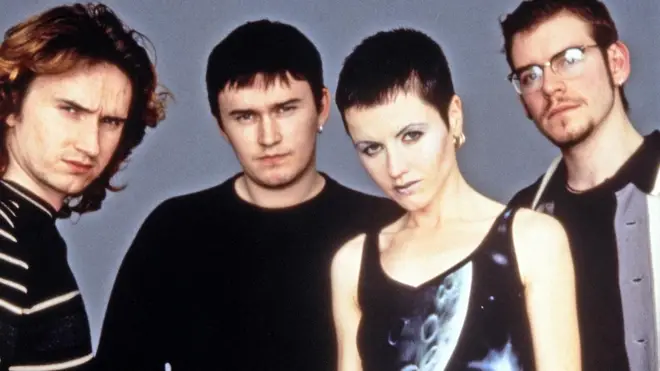
At the time the song was written, the “Troubles” in Northern Ireland were at their height. The IRA continued their terror campaign against the British government’s involvement and presence in Northern Ireland and attacks on the British mainland were commonplace.
20 March 1993 was a Saturday - the busiest shopping day of the week and a time when lots of children were out buying Mother's Day cards and presents to give that Sunday.
In the North Western town of Warrington, Cheshire, the IRA had planted bombs in cast iron dustbins: one outside the local Boots and McDonalds and the other outside the nearby Argos. The terrorists phoned Merseyside police just before midday with a coded warning that there was a bomb outside a Boots - but they didn't say which town.
When one bomb exploded in Warrington 25 minutes later, panicked crowds ran directly into the path of the second explosion.
Three year old Johnathan Ball died at the scene, while 12-year-old Tim Parry was seriously injured. He died five days later after his life support was switched off. 54 other people suffered injuries.
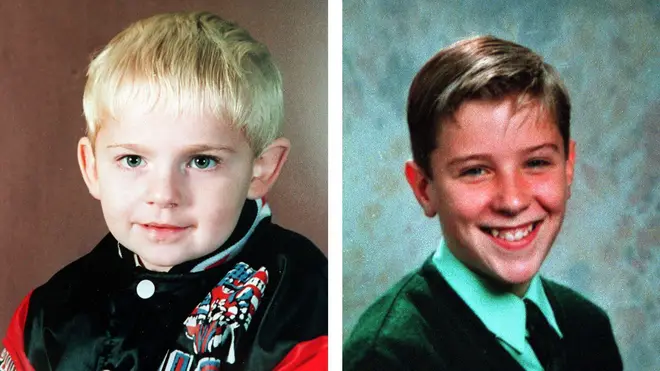
Hailing from Limerick in South Ireland, The Cranberries were on tour in the UK in March 1993, supporting the release of their debut LP that same month entitled Everybody Else Is Doing It, So Why Can’t We?
Zombie was a direct response from the Irish musicians to the horror of Warrington and all the other atrocities that had taken place, pleading: "Another mother's breaking / Heart is taking over / When the violence causes silence / We must be mistaken."
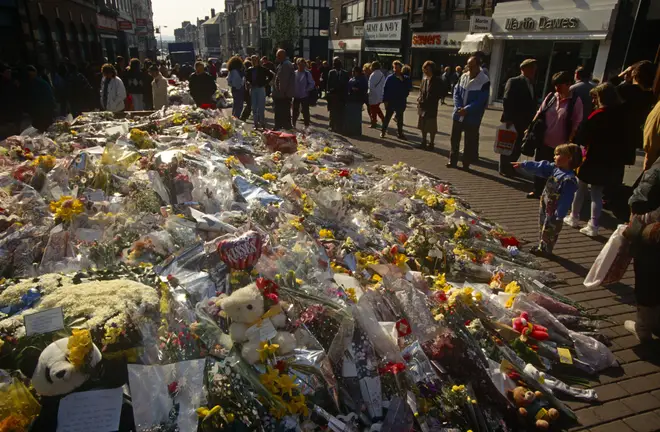
Following the death of Dolores O’Riordan, Tim Parry’s father, Colin, paid tribute to the singer after hearing that Zombie was about the incident that claimed his son.
Taking to Twitter, he wrote: "I’m saddened to hear of the death of Dolores O’Riordan at just 46. Her wonderful band recorded a moving song after the Warrington bomb in memory of two innocent victims, Johnathan Ball and my son Tim. RIP Dolores".
Parry explained how he only came to hear about the meaning of then song after her passing, telling BBC's Good Morning Ulster show: "Only yesterday did I discover that her group, or she herself, had composed the song in memory of the event in Warrington."
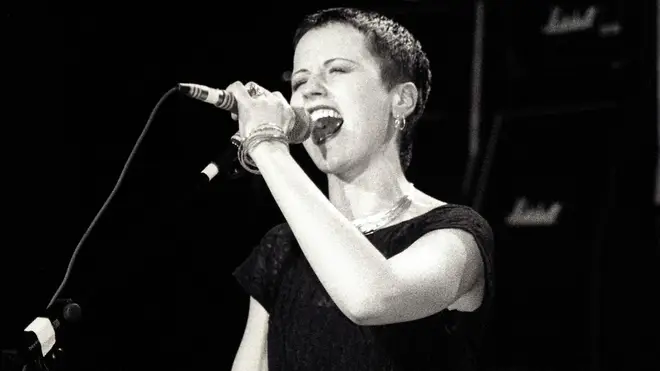
He added: "I was completely unaware what it was about. My wife came home from the police centre where she worked yesterday and told me the news.
"I got the song up on my laptop, watched the band singing, saw Dolores and listened to the words. The words are both majestic and also very real."
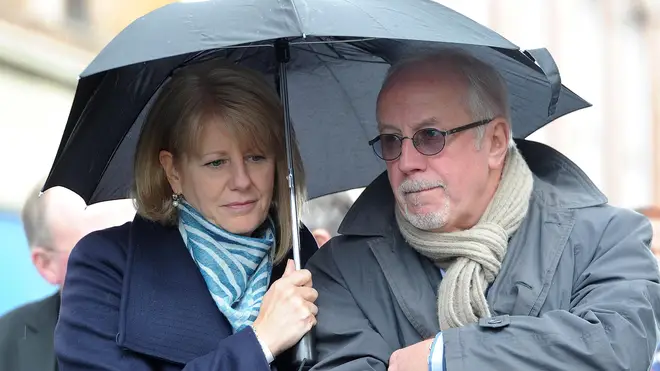
He added: "The event at Warrington, like the many events that happened all over Ireland and Great Britain, affected families in a very real way and many people have become immune to the pain and suffering that so many people experienced during that armed campaign."
To read the words written by an Irish band in such compelling way was very, very powerful."
I likened it to the enormous amount of mail expressing huge sympathy that we received in the days, weeks and months following our loss."
Parry now works his wife Wendy on the in helping survivors of terrorism.
You can find out more at
The true meaning behind The Cranberries song ‘Zombie’
Some of the best songs in music history are the ones that sit within historical or cultural relevance. Billy Idol’s ‘We Didn’t Start The Fire’ still exists today as one of the greatest rock anthems, not only because it’s a great song but because it’s rich in historical references. Equally, rock masterpiece ‘Zombie’ by The Cranberries has earned a rightful spot among the pantheon of historically-charged greats, serving as a poignant reminder of the immense human toll of conflict.
Formed in Ireland in 1989, The Cranberries’ original lineup consisted of lead vocalist Dolores O’Riordan, guitarist Noel Hogan, bassist Mike Hogan, and drummer Fergal Lawler. In the 1990s, they rose to prominence with their distinctive blend of alternative rock, pop, and folk elements. O’Riordan’s ethereal vocals and poignant songwriting, combined with the band’s melodic and guitar-driven sound, set them apart from other bands of their time.
The Cranberries’ music often explored themes of love, loss, and personal struggles, and their lyrics were introspective and emotionally resonant. Characterised by a mix of dreamy melodies, catchy hooks, and O’Riordan’s powerful and emotive vocals, their sound was very much a one to watch, which became more than clear when they released ‘Zombie’ in 1994.
Born from a tragic event, ‘Zombie’ not only offers a haunting and profound glimpse into O’Riordan’s experiences in Ireland but also possesses a universal connection that transcends borders. The song was penned in response to The Troubles, a period of political conflict and violence between Northern Irish nationalists, who sought a united Ireland, and unionists, who wanted Northern Ireland to remain part of the United Kingdom. One of the most devastating events during this time was the 1993 IRA bombing in Warrington, England, which killed two young boys and injured many others.
‘Zombie’ held immense personal significance for O’Riordan, who had a strong “feeling” that she had to write a song that reflected the event before the song came to her subconsciously during The Cranberries’ tour in 1993.
The lyrics and chords for ‘Zombie’ were initially written on an acoustic guitar by O’Riordan late one night: “I remember being in my flat, coming up with the chorus, which was catchy and anthemic,” she said. However, despite her passion, O’Riordan faced resistance in getting the song released. She persevered, with the label even offering her a $1million fee to work on another track in an attempt to prevent ‘Zombie’ from reaching the airwaves, underscoring its potent and contentious nature.
The song’s lyrics express anger, frustration, and grief over the senseless loss of life and the impact of the conflict on innocent people. The word “zombie” in the song’s title is used as a metaphor to describe the dehumanising effects of war and violence on individuals and communities.
The song was originally to be titled ‘In Your Head’, but then became revised to ‘Zombie’ after being a part of their live tour. The song has been long-dubbed an anthem of the grunge movement, but that much was intentional, at least to O’Riordan. “This wasn’t grunge, but the timing was good,” she said.
Afterwards, ‘Zombie’ became one of The Cranberries’ most iconic and successful songs, reaching the top of the charts in several countries. Its powerful message and emotional intensity resonated with audiences, making it a poignant anthem against violence: this fervent emotion, recorded in a single moment of anger, has endured the years, a testament to O’Riordan’s mastery.
Transcending time with emotion is a difficult task, yet O’Riordan accomplished the seemingly impossible. What’s more, to use music as a catalyst for change is even more challenging, but ‘Zombie’ stands today as it did in 1994, adorned with a stroke of sheer brilliance.
How I wrote ‘Zombie’ by The Cranberries’ Dolores O’Riordan
Before the Irish band’s singer tragically died in 2018, she told us how this classic 90s rock song was created
Irish indie/alt-rock band The Cranberries quickly found worldwide commercial success in the 90s with their debut album, Everybody Else Is Doing It, So Why Can’t We?, which featured the hit single Linger. Follow-up No Need To Argue could easily have been their ‘difficult second album’, but it instead became their best-selling LP, propelled by its lead single Zombie, which topped the charts in five countries.
Moved by the death of two boys in an IRA bomb attack in Warrington in 1993, the band’s yodelling frontwoman Dolores O’Riordan wrote the song’s uncompromising lyric and recorded an impassioned vocal to match. Here, in her own frank words, Dolores expanded on how Zombie came to life…
“We were on a tour bus and I was near the location where it happened, so it really struck me hard – I was quite young, but I remember being devastated about the innocent children being pulled into that kind of thing. So I suppose that’s why I was saying, ‘It’s not me’ – that even though I’m Irish it wasn’t me, I didn’t do it. Because being Irish, it was quite hard, especially in the UK when there was so much tension. It’s so different now. If you told a teenager now what it was like back then they wouldn’t believe you, but it wasn’t such a long time ago.
“I draw from a lot of different life experiences: births, deaths, war, pain, depression, anger, sadness. I’m also obsessed with mortality. I have bipolar disorder so I struggle with mood swings – I go from one extreme to the next. But I think that was irrelevant when writing Zombie because the event was so massive at the time – it was all over the papers. I just remember being young and spirited, without any hang-ups, I had no chip on my shoulder and would just write what I thought.
“It came through quite subconsciously really, although I had a feeling I was going to write about it. I had the core chords that I’d written on my acoustic guitar, and I was back in Ireland when it came together. I was living in a small flat with my first boyfriend in Limerick, and I remember I’d come home after a night out. I sat down with my guitar and started strumming those chords and the chorus just came out really fast then.
“Once I’d got that hook and the chorus, I started thinking about the verses and they came quite easily at the time. I found it very easy to write lyrics when I was younger because I had no inhibitions – they just came pouring out. I find as I get older it’s more difficult: you develop fears and you go, ‘What will people think of this?’ But it’s important not to think too much about what people will think, because then you’ll never write!
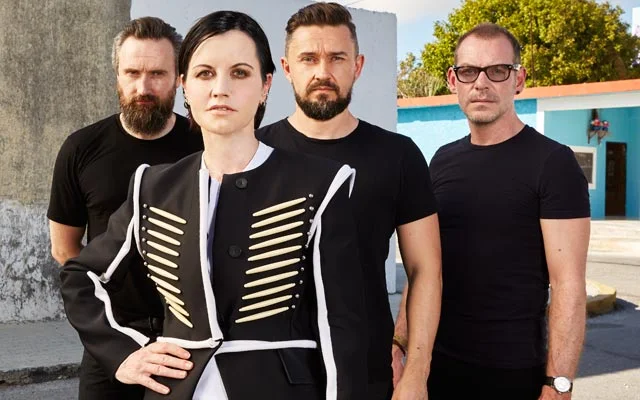
The Cranberries: “It’s important not to think too much about what people will think, because then you’ll never write!”
“When it was recorded with Stephen Street and I heard it back, I thought, ‘Woah, that’s catchy.’ But I didn’t have any idea, at the time, that it would be so successful. You never really know. Even to this day, when I’m writing I can’t tell if it sounds good or bad!”
EXPERT OPINION by James Linderman
“This is a song that completely exemplifies the tricky balancing act of caring very deeply about people, but at the same time, not caring one bit about what they think of your art and so being able to express yourself honestly.”

- Date:
- Wednesday, April 26, 1995
- Venue:
- Wings Stadium
- Location:
- Kalamazoo, Michigan, United States
https://www.concertarchives.org/concerts/the-cranberries-901d7fed-c90e-42c7-a517-ee683d9dce0c
An exact setlist wasn't found. Here is their closest one (from 04/25/1995), which may be similar:
- "Yeat's Grave"
- Sunday
- Linger
- Pretty
- "Dreaming My Dreams"
- How
- "Daffodil Lament"
- "I Can't Be With You"
- "I Just Shot John Lennon"
- Wanted
- "Ode to My Family"
- "Not Sorry"
- "Still Can't..."
- "Waltzing Back"
- "Ridiculous Thoughts"
- Empty
- Dreams
- "No Need to Argue"
- Zombie
View & edit this setlist on Setlist.fm

+++++++++++++++++++++++++++++++++++++++++++++++++++++++++++++++++++++++
+++++++++++++++++++++++++++++++++++++++++++++++++++++++++++++++++++++++
+++++++++++++++++++++++++++++++++++++++++++++++++++++++++++++++++++++++
- Bloggery committed by chris tower - 2312.18 - 10:10
- Days ago = 3090 days ago
- New note - On 1807.06, I ceased daily transmission of my Hey Mom feature after three years of daily conversations. I plan to continue Hey Mom posts at least twice per week but will continue to post the days since ("Days Ago") count on my blog each day. The blog entry numbering in the title has changed to reflect total Sense of Doubt posts since I began the blog on 0705.04, which include Hey Mom posts, Daily Bowie posts, and Sense of Doubt posts. Hey Mom posts will still be numbered sequentially. New Hey Mom posts will use the same format as all the other Hey Mom posts; all other posts will feature this format seen here.







No comments:
Post a Comment